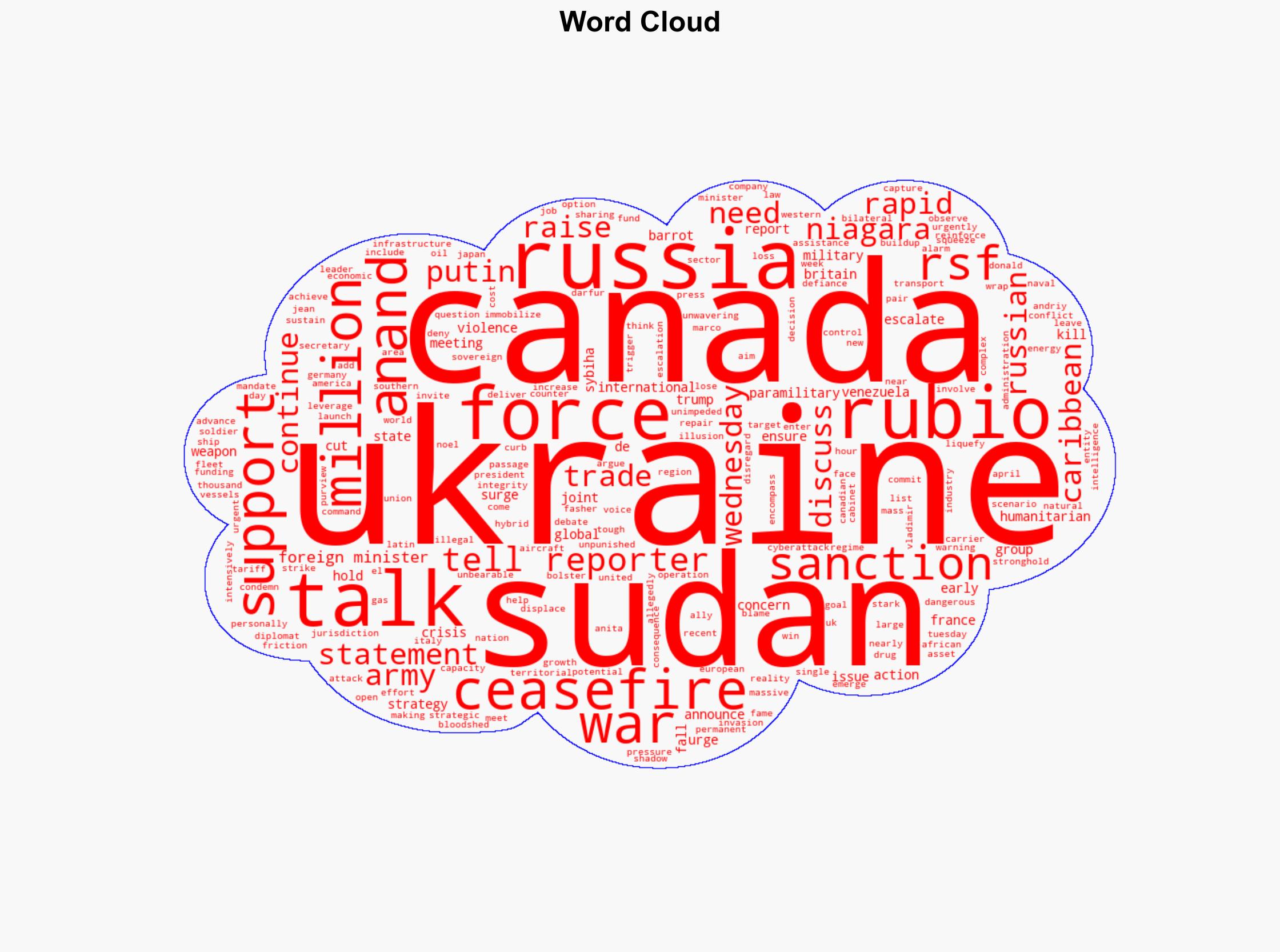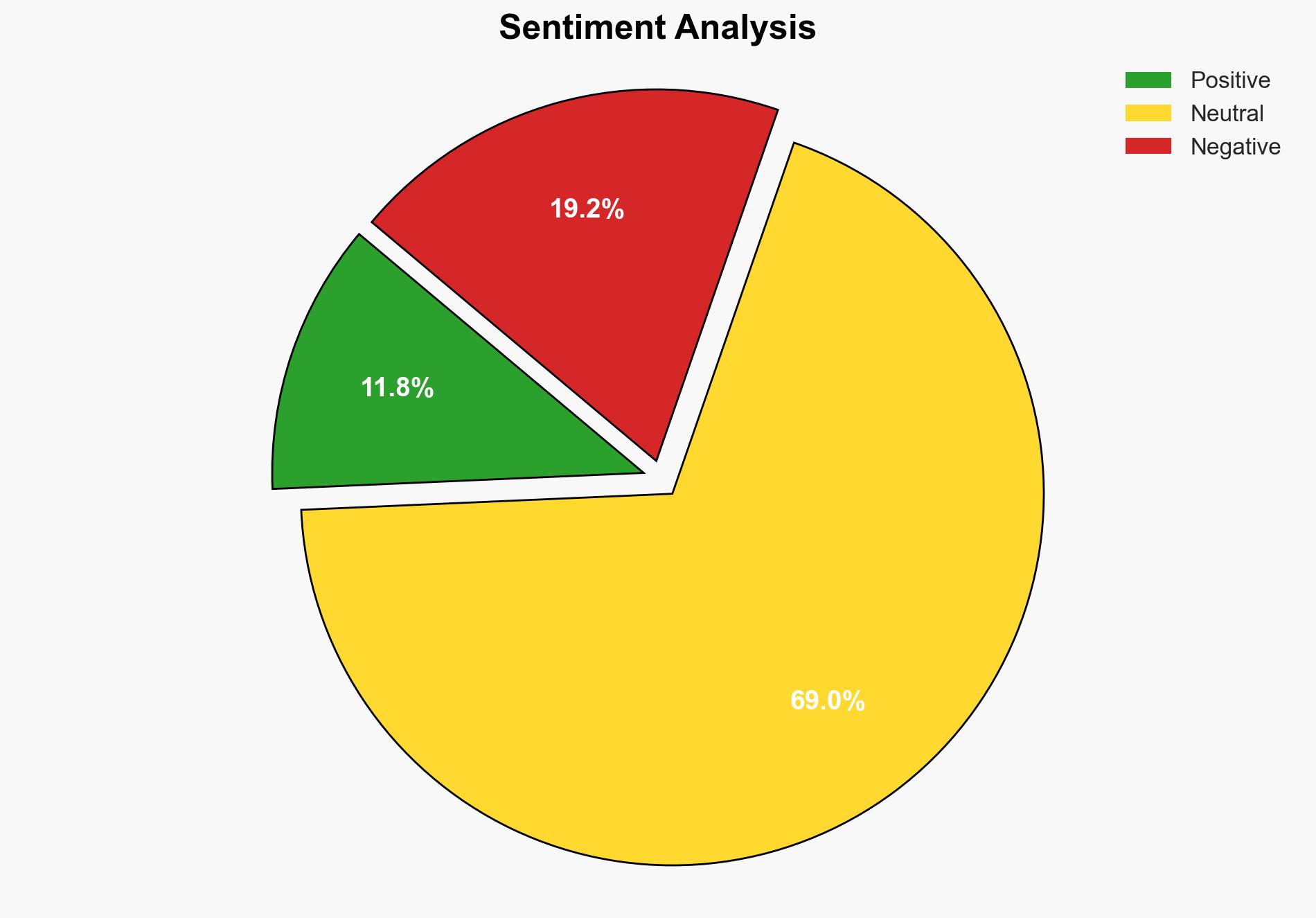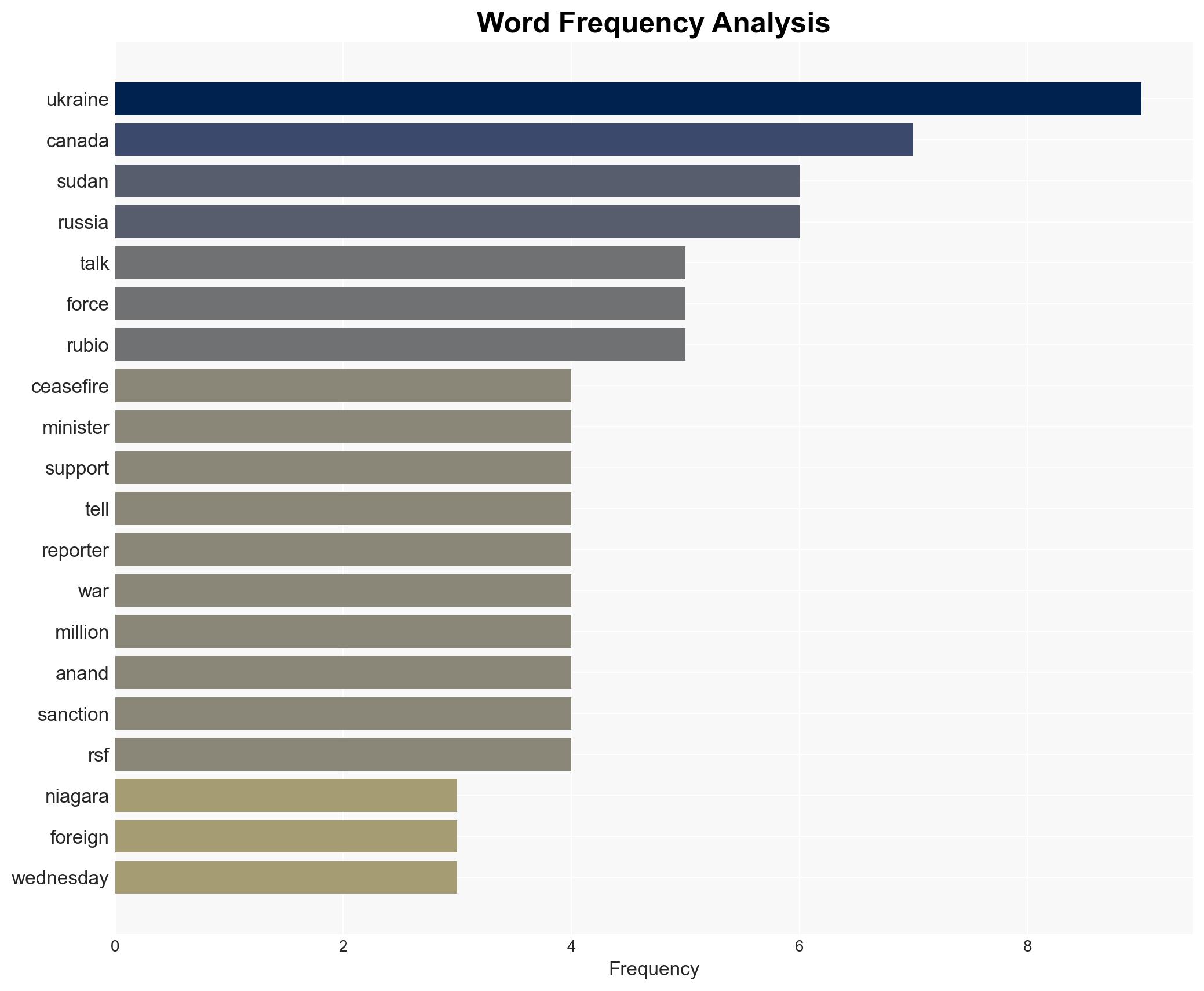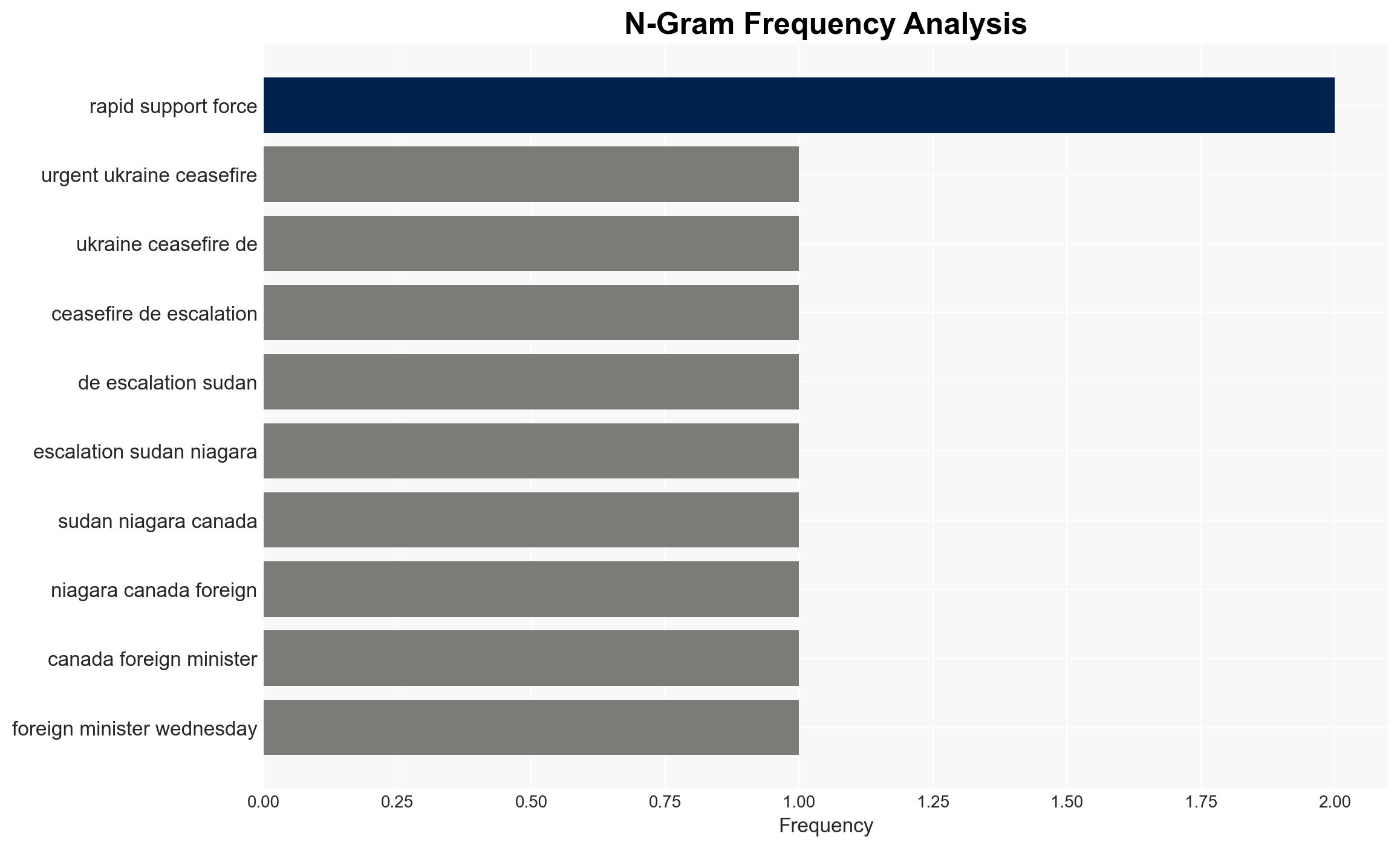G7 calls for urgent Ukraine ceasefire de-escalation in Sudan – Hurriyet Daily News
Published on: 2025-11-13
AI-powered OSINT brief from verified open sources. Automated NLP signal extraction with human verification. See our Methodology and Why WorldWideWatchers.
Intelligence Report: G7 calls for urgent Ukraine ceasefire de-escalation in Sudan – Hurriyet Daily News
1. BLUF (Bottom Line Up Front)
The G7’s call for a ceasefire in Ukraine and de-escalation in Sudan reflects a strategic effort to stabilize two critical geopolitical regions. The most supported hypothesis is that the G7 aims to leverage diplomatic and economic pressures to curb Russian aggression in Ukraine while simultaneously addressing the humanitarian crisis in Sudan. Confidence Level: Moderate. Recommended action includes enhancing diplomatic engagements and imposing targeted sanctions to deter further escalation.
2. Competing Hypotheses
Hypothesis 1: The G7’s dual focus on Ukraine and Sudan is a coordinated strategy to address immediate security threats and humanitarian crises, leveraging diplomatic pressure and sanctions to achieve de-escalation.
Hypothesis 2: The G7’s statements are primarily symbolic, aimed at maintaining international pressure on Russia and Sudan without significant strategic shifts or new commitments.
Hypothesis 1 is more likely due to the detailed discussions on leveraging Russian assets and the imposition of new sanctions, indicating a proactive stance rather than mere rhetoric.
3. Key Assumptions and Red Flags
Assumptions: The G7 countries are unified in their approach to both crises. Sanctions and diplomatic efforts will effectively pressure Russia and Sudan.
Red Flags: Potential lack of consensus within the G7 on the extent of actions. Russia and Sudan’s potential countermeasures or exploitation of internal G7 disagreements.
4. Implications and Strategic Risks
The G7’s actions could lead to increased tensions with Russia, potentially escalating cyber and economic retaliations. In Sudan, failure to achieve de-escalation could worsen the humanitarian crisis and destabilize the region further. Both scenarios risk drawing in additional international actors, complicating resolution efforts.
5. Recommendations and Outlook
- Enhance intelligence sharing and coordination among G7 members to ensure unified action.
- Increase diplomatic outreach to non-G7 countries to broaden support for sanctions and de-escalation efforts.
- Prepare contingency plans for potential Russian or Sudanese counteractions, including cyber and economic disruptions.
- Best-case scenario: Successful ceasefire in Ukraine and de-escalation in Sudan, leading to stabilization.
- Worst-case scenario: Escalation of conflicts, with broader international involvement and increased humanitarian crises.
- Most-likely scenario: Continued diplomatic and economic pressure with gradual progress in de-escalation efforts.
6. Key Individuals and Entities
Anita Anand, Andriy Sybiha, Marco Rubio, Vladimir Putin.
7. Thematic Tags
Regional Focus: Ukraine, Sudan, G7 Diplomacy, Sanctions, Humanitarian Crisis
Structured Analytic Techniques Applied
- Causal Layered Analysis (CLA): Analyze events across surface happenings, systems, worldviews, and myths.
- Cross-Impact Simulation: Model ripple effects across neighboring states, conflicts, or economic dependencies.
- Scenario Generation: Explore divergent futures under varying assumptions to identify plausible paths.
- Bayesian Scenario Modeling: Forecast futures under uncertainty via probabilistic logic.
Explore more:
Regional Focus Briefs ·
Daily Summary ·
Methodology





